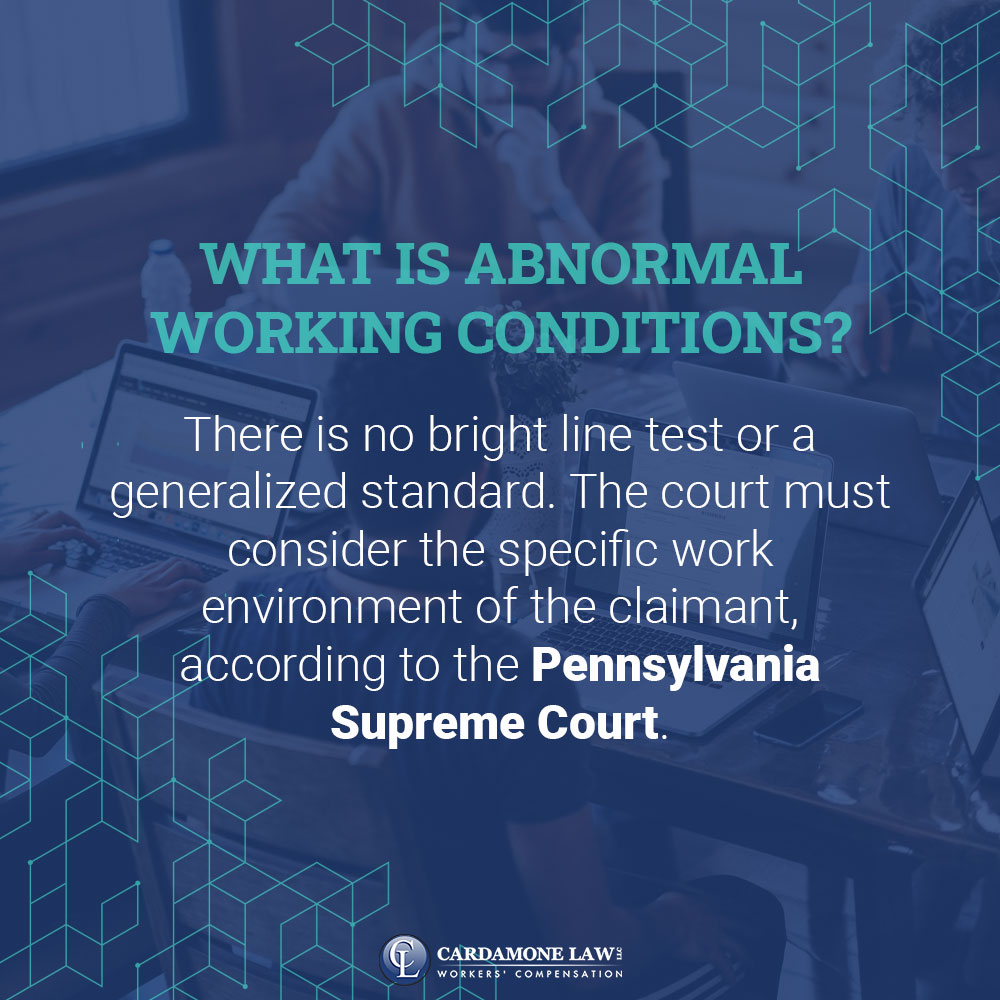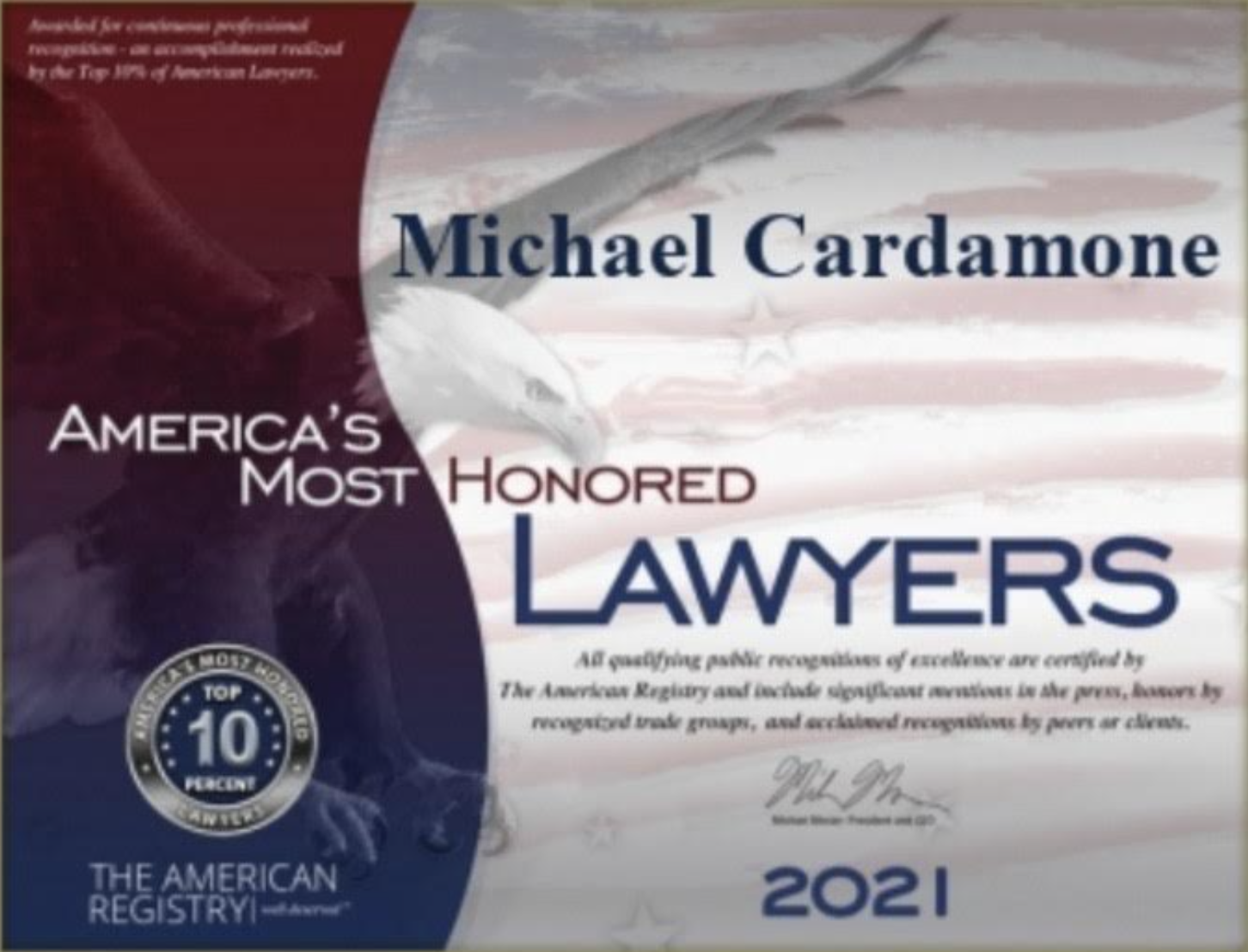In Payes v. WCAB, decided October 30,2013, the Pennsylvania Supreme Court found that the Commonwealth Court erred by not accepting the well-supported facts by the Workers’ Compensation Judge establishing the existence of an extraordinarily unusual and distressing single work-related event experienced by Appellant (injured worker) resulting in his disabling mental condition, where such single and comprehensive work-related event constituted an abnormal working condition as a matter of law.
In cases like these, which we call “mental-mental”, where a mental stimulus causes a mental injury, an injured worker must prove abnormal working conditions under PA Work Comp Law.
The Mental-Mental Case – Payes v. WCAB
The factual predicate of this case is rather simple, but not common. The Claimant was a trooper with the Pennsylvania State Police and worked as such for about 12 years before the incident which happened on November 29, 2006. On that date, he was driving his patrol car at 545am, while it was dark, when a woman dressed in all black, including a black cap, suddenly ran in front of and was struck by his car. She flipped over the vehicle and landed on the highway. He immediately got out of his car to attend to her, as she was bleeding from the mouth. As he was trying to revive her, he also had to try to divert oncoming traffic from hitting himself and the victim. The incident was caught on film by a camera mounted on his patrol car. Other troopers arrived, but she was pronounced dead at the scene.
Later, it was discovered that she suffered from mental illness. The trooper was transported to a hospital for testing as he was exposed to her blood. He returned to work in early January, 2007 but after four days, his feelings of anxiousness and stress led him to believe he could not continue to perform his job as a state trooper.
The Burden of Proof In A Mental Injury Under The PA Work Comp Act
Claimant filed a Claim Petition alleging Post Traumatic Stress Disorder. After hearings and presentation of testimony, including expert psychiatric testimony, the Workers’ Compensation Judge found him credible and his medical expert. The WCJ found Claimant had met his burden of proving a mental injury arising from a work-related mental stimulus and while state troopers may expect to encounter or be involved with violent situations, that this particular work-related stimulus was not one normally encountered by or expect of state troopers- and therefore, that Claimant met his burden of showing abnormal working conditions- which is required for mental-mental cases.

Image Source: pexels/SHVETS production
The Workers’ Compensation Appeal Board reversed the WCJ’s ruling finding that this incident did not constitute abnormal working conditions given the nature of Claimant’s “stressful and perilous profession”.
Pennsylvania Supreme Court’s Verdict on Mental-Mental Case
The Commonwealth Court affirmed the WCAB’s Decision holding as a matter of law that Claimant’s injury did not result from an abnormal working condition, citing in part the notion that in the line of a police officer, Claimant can be expected to be witness to horrible tragedy. The Commonwealth Court broke down each part of the accident and post-accident events, claiming each sequence was not extraordinary for that type of work.
The Pennsylvania Supreme Court, in a 22-page Decision, held that the Commonwealth Court erred by not accepting the well-supported facts found by the WCJ which established the existence of an extraordinarily unusual and depressing single work-related event experienced by Claimant resulting in his disabling mental condition. The Court first reviewed the standard on appeal- that is, that the Court must affirm the adjudication below unless it finds that an error of law was committed, that constitutional rights were violated, that a practice or procedure of a Commonwealth agency was not followed or that any necessary finding of fact is not supported by substantial evidence of record. It then discussed the abnormal working condition precedent, emphasizing just how “highly fact sensitive” the exercise is. In classifying what is “abnormal”, the Court recognized that there is no bright line test or a generalized standard. Instead, we must consider the specific work environment of the claimant. The Court then analyzed specific cases involving abnormal working conditions and police officers.

The ‘Normal’ Working Conditions For A Police Officer
Most importantly, the Pennsylvania Supreme Court seized on one of the WCJ’s Findings- specifically number 13 wherein the WCJ concluded that State Troopers are not in their normal course of their duties when exposed to what occurred in this case- a mentally disturbed person running in front of Claimant’s vehicle for no apparent reason. Likewise, what the Claimant had to deal with in the aftermath was not something that normally occurs for State Troopers. This Finding, said the Pennsylvania Supreme Court, was not found to be unsupported by the evidence, nor was it arbitrary and capricious such that it could be set aside. The Commonwealth Court, reformulated Finding 13 of the WCJ, into unrelated component parts, where each part standing alone, might be safely determined to be a “normal” working condition for a police officer.
Finding The Right Brain Injury Lawyer To Represent Your Work Comp Case in PA
But because the injury arose from a single incident, the inquiry must rest on whether that single incident alone, and not any purportedly comparable sets of incidents, was abnormal. Finding 13 by the WCJ, which was not disturbed on appeal, found that the incident was not one to which state troopers are normally exposed. The Court found that the record supported this Finding.
Payes v. WCAB Under The PA Workers’ Compensation Act
This is a great decision for injured workers in Pennsylvania. It shows that you cannot assume that because a person is in a rough and tumble type of job, that the person is never going to experience anything unusual. Even a State Trooper can be confronted with highly unusual or “abnormal” working conditions which results in significant psychological injury. The Decision also reminds us to really examine the Workers’ Compensation Judge’s Findings, because if they are supported by the record, and not disturbed on appeal, they govern.

For more information about Pennsylvania Workers’ Compensation Practice or Procedure, call or email Certified Pennsylvania Work Injury Attorney Michael W. Cardamone at 215-206-9068 or michael@cardamonelaw.com for a free and prompt consult 7 days a week.















